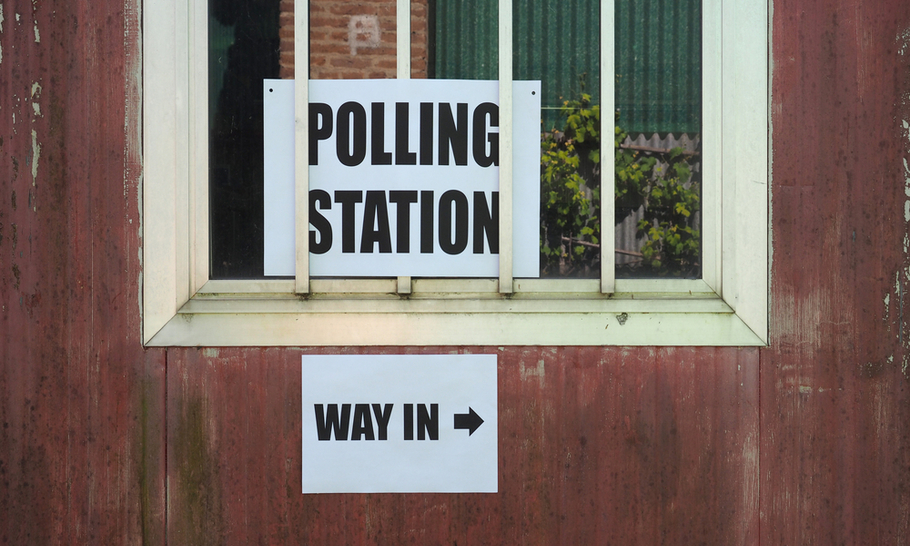Wannabe MPs have everything to play for at the next General Election

When the Daily Telegraph began publishing documents relating to the expenses furore in 2009, it was the start of a scandal that would shake the British political system to its core. The drip-by-drip, day-by-day revelations went on for months, and as each new allegation was published, the British public became angrier.
Fast forward 10 years and many of us who have been around a while will have noticed the similarities between that scandal and the one engulfing us now – Brexit.
Prior to the expense’s revelations, there was a certain amount of arrogance among politicians. Some had been actively encouraged to find the grey areas within the expenses system, to make up for years of avoiding increasing MPs pay. Some had tried to stop the information being released, (originally asked for by way of a Freedom of Information request) with Harriett Harman – the then Leader of the House – tabling a motion to exempt MPs’ expenses from being disclosed.
Then, the Telegraph’s story took off, and MPs reported that “colleagues were beginning to crack”. They never knew who would be targeted next,and for what. David Cameron, as Leader of the Opposition, was keen to show a hard-line response, and told his MPs that the anger and mood were warranted.
With election preparations underway, what became very clear was the anger amongst the prospective 2010 intake about the role of sitting MPs in the scandal and the damage done to British democracy. As Prospective Parliamentary Candidates (PPCs) they were the ones knocking on doors – untarnished themselves from the expenses scandal but receiving the brunt of the public anger. There was a ‘race to the bottom’ of who would claim the least in expenses, with PPCs condemning the actions of sitting MPs for their role in the scandal.
This scandal was not limited to just one MP, or one Party, but tarred everyone with the same brush. It led to a more resignations and seat changes than had been seen for decades. The election which followed a year later in 2010, saw 231 seat changes; well over a third of the House of Commons.
The PPCs at that election had made very clear to their Parties directly, to their Local Associations and to their constituents that they would not make the same mistakes. They would be the ones to restore faith in democracy. Certainly when the new 231 MPs arrived in May 2010, their sheer numbers allowed them to set the direction on this, and the existing MPs had no choice but to follow along.
Ten years later any trust which had been rebuilt into democracy has long vanished through endless post-referendum delays, And many of those 2010-intake are preparing to fight another election where they are considered to be the ones who have failed Parliament. Before the 2017 election, 31 MPs announced they were standing down. No election has yet been called and we are already up to 43 publicly announced; there will be more.
With punishment at the ballot box also looking quite likely for many MPs, this will be another election where we can expect to see a lot of new faces elected on promises to right the wrongs of their predecessors. More than anything, they will be keen to make an impact and prove their success as the (hopefully) first post-Brexit Parliament. The new Parliament will likely have a much higher number of MPs who support Brexit; unlike those standing down who see themselves as the pro-Europe generation. The time of a Remain-Parliament will be over, and any thoughts of revisiting our membership of the EU could vanish for another generation.
Then there is the question of what impact a new Speaker might have on the next Parliament. Bercow, through all his faults, has been a champion of the backbench MP. Something which assisted the masses of the 2010-intake, too new to have been promoted within Government. The current Speaker-candidates are all promising to take more neutral positions; but will this play more into the hands of the Government?
And finally, the style of the Whips’ Office will be crucial. Under David Cameron, the Whips’ Office had a much more ‘mentoring’ approach – MPs were to be nurtured and developed. This quickly fell away under May with arm-twisting and threats becoming more common again. A sizeable majority will allow the Chief to relax a little; but with difficult legislation to pass, might a Cumming’s-style ‘purge’ remain a threat to keep MPs in line?
Anyone considering standing in the 2019/2020 election, beware. The next Parliament might look very, very different to this one.




